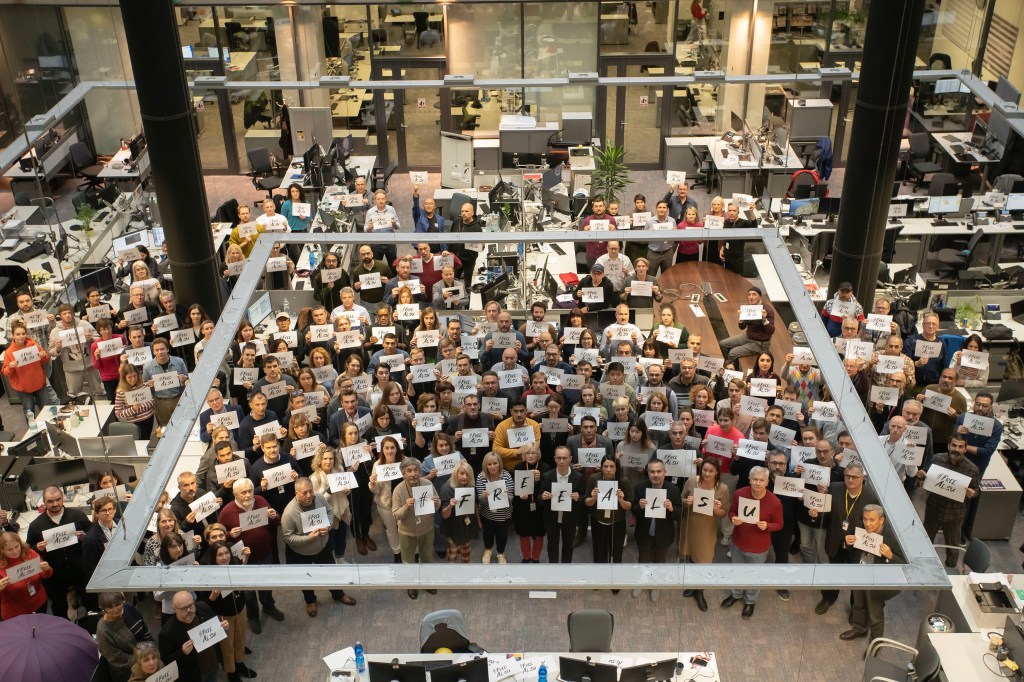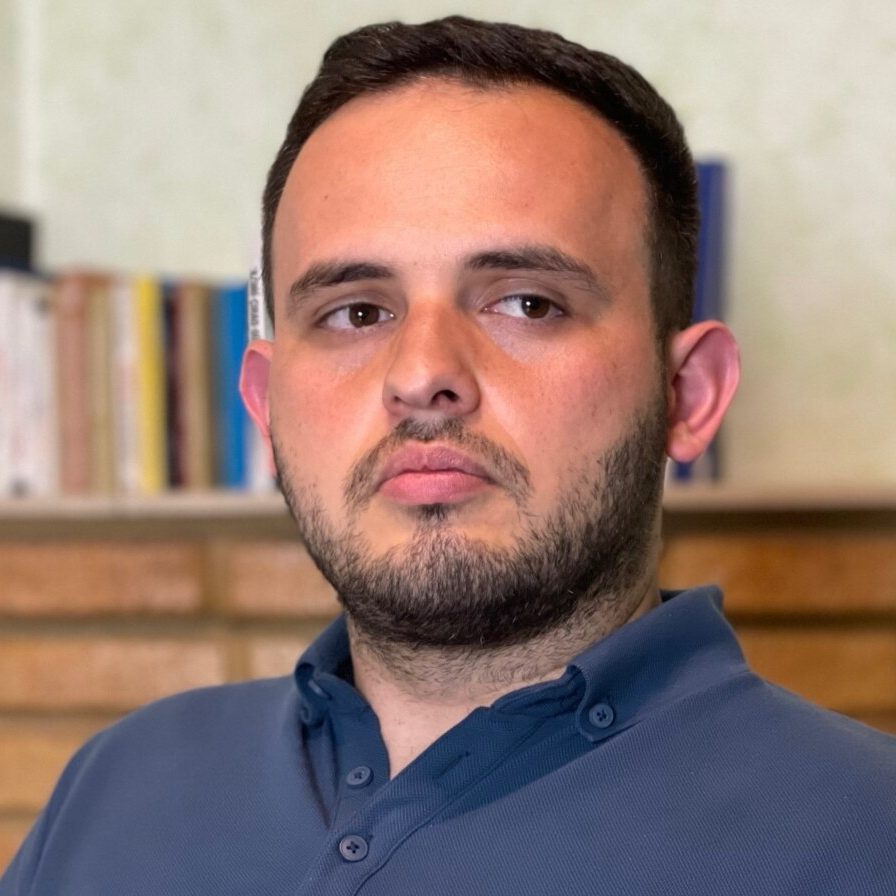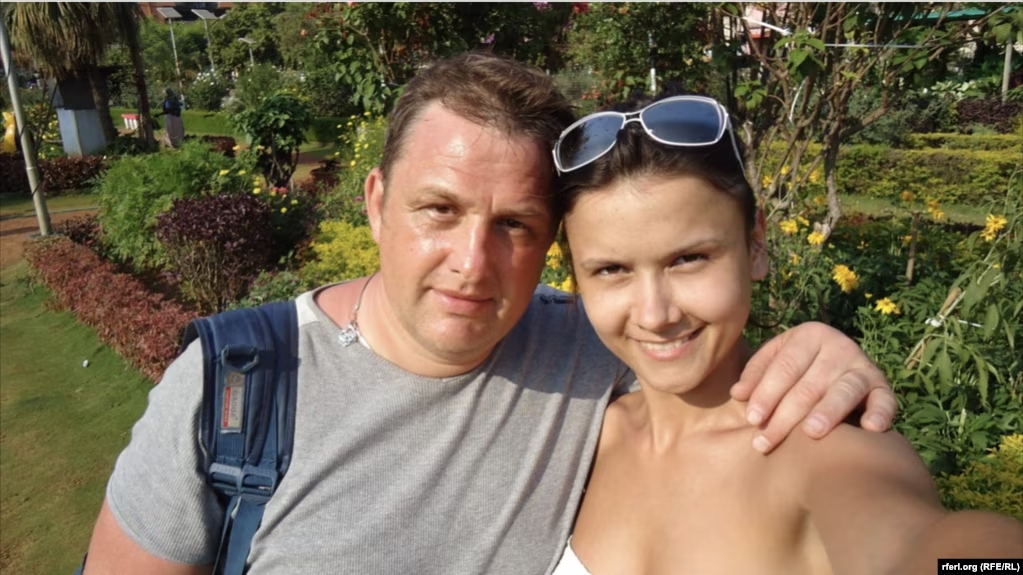Imprisoned Journalists
RFE/RL advocates on behalf of its journalists who have been imprisoned because of their work. They must be released immediately to their families. Journalism is not a crime.

RFE/RL journalists and staff face intimidation, physical harm, and imprisonment because of their work. It is RFE/RL’s top priority to advocate for the release of our imprisoned journalists and to ensure that our staff can do their jobs safely.

Join us in advocating for press freedom and supporting RFE/RL journalists who have been unjustly imprisoned.
RFE/RL advocates on behalf of its journalists who have been imprisoned because of their work. They must be released immediately to their families. Journalism is not a crime.

Ihar Losik, a journalist for RFE/RL’s Belarus Service, was detained in Minsk, Belarus, on June 25, 2020.

Farid Mehralizada is an economist and journalist for RFE/RL’s Azerbaijani Service who has been unjustly detained in Baku since May 30, 2024.

Nika Novak is a journalist for Radio Free Europe/Radio Liberty (RFE/RL)’s Russian Service, known as Radio Svoboda, who has been unjustly detained in Russia since December 25, 2023.
Increasing legislative and administrative restrictions on journalists in Azerbaijan have put significant pressure on RFE/RL’s Azerbaijani Service, known locally as Radio Azadliq, and other independent media outlets.
Radio Azadliq was banned from broadcasting on FM frequencies in 2009. The Service’s Baku bureau was raided and shut down in 2014. The Service’s website was subsequently blocked in 2017.
In June 2024, the European Court of Human Rights (ECHR) ruled that Azerbaijan’s decision to block access to Radio Azadliq’s website in 2017 was unlawful.
Former bureau chief Khadija Ismayilova was arrested and jailed for 18 months in 2014. In February 2020, the ECHR ruled that Ismayilova’s detention was intended to “silence and punish her for her work” and violated her rights.
Two ECHR rulings in January 2019 and May 2020 also condemned the Azerbaijani authorities for failing to protect Ismayilova’s rights in the face of an intimidation campaign launched against her because of her journalism.
In 2021, Azerbaijani law enforcement targeted at least five Radio Azadliq journalists with Pegasus spyware.
Radio Azadliq freelancer Aytan Mammadova was physically attacked and threatened at knifepoint in 2022 for covering criminal investigations.
Farid Mehralizada, an economist and journalist for Radio Azadliq, has been unjustly detained in Baku since May 30, 2024.
The Kremlin’s suppression of press freedom has intensified since the beginning of its full-scale war on Ukraine. Authorities blocked nine RFE/RL websites in February 2022 after RFE/RL refused to comply with demands to delete reporting about the war. In the following months, RFE/RL journalists in Russia were harassed, detained, and smeared as “foreign agents.”
Authorities launched a forced bankruptcy case against RFE/RL for its refusal to pay multiple fines totaling more than $14 million levied under Russia’s so-called “foreign agent” law. As a result, RFE/RL was forced to close its Moscow bureau in March 2022 and was formally declared bankrupt a year later.
RFE/RL journalists continue to be targeted by the Russian authorities.
In February 2024, RFE/RL was designated an “undesirable organization” by Russian authorities. Russian citizens face up to five years in prison for cooperating with “undesirable” organizations or aiding in their financing within Russia.
As part of the Lukashenka regime’s crackdown on independent media, the Belarusian Interior Ministry added RFE/RL’s Belarus Service, known locally as Radio Svaboda, to its registry of “extremist organizations”on December 23, 2021. The designation criminalizes RFE, its journalists, and even our audience, while the label carries the potential for legal penalties: up to 10 years in prison for our founders, and up to 6 years for those who consume or distribute Radio Svaboda content.
Current Time, RFE/RL’s 24/7 Russian-language TV and digital network has had its content classified as “extremist materials.” With this move, which targets the consumption of specific output rather than the organization itself, Belarusians who share Current Time content can face administrative penalties—typically fines or short-term administrative detention, usually up to 15 days.
One RFE/RL journalist is currently imprisoned in Belarus: Ihar Losik. Ihar has been recognized by Belarusian and international human rights organizations as a political prisoner.
RFE/RL journalists and staff face intimidation, physical harm, and imprisonment because of their work. It is RFE/RL’s top priority to advocate for the release of our imprisoned journalists and ensure our staff can do their jobs safely.
Subscribe now to stay informed about incidents targeting RFE/RL journalists, developments affecting press freedom in our coverage region, and how you can help.

Judge Royce Lamberth of the U.S. District Court for the District of Columbia has once again granted Radio Free Europe/Radio Liberty (RFE/RL)’s request for a temporary restraining order in its…

Radio Free Europe/Radio Liberty (RFE/RL) welcomes Vladyslav’s release and thanks the U.S. and Ukrainian governments for efforts to bring him home.

Former RFE/RL journalist Ihar Karnei has been freed from unjust detention in Belarus.